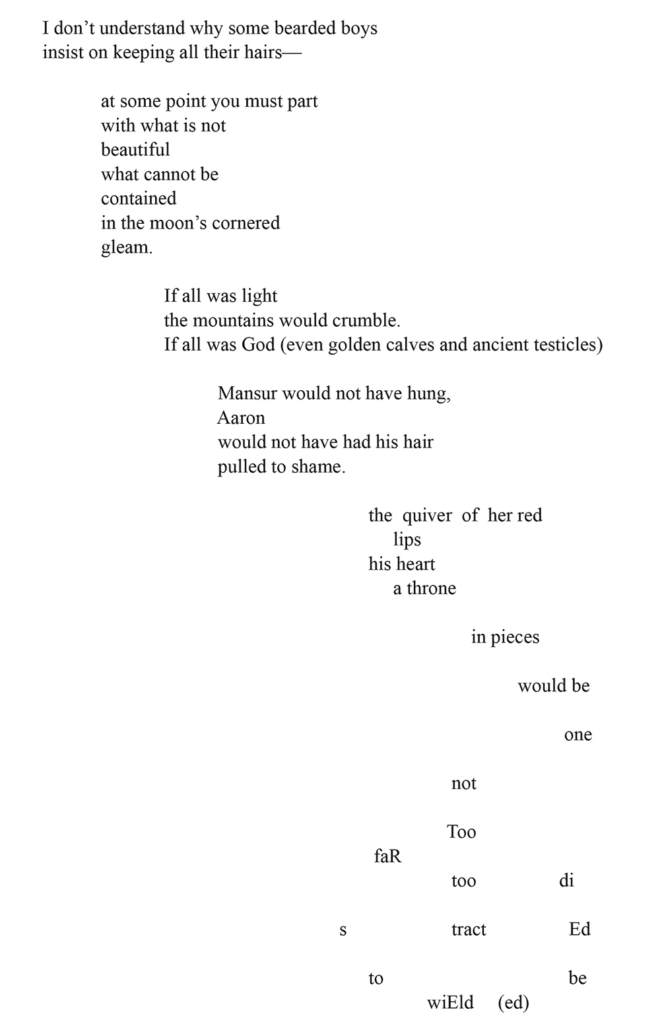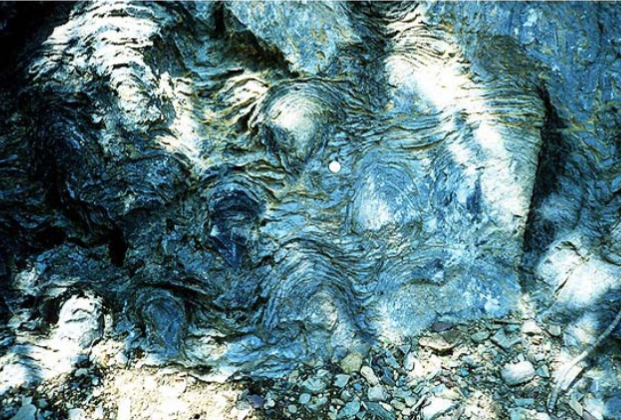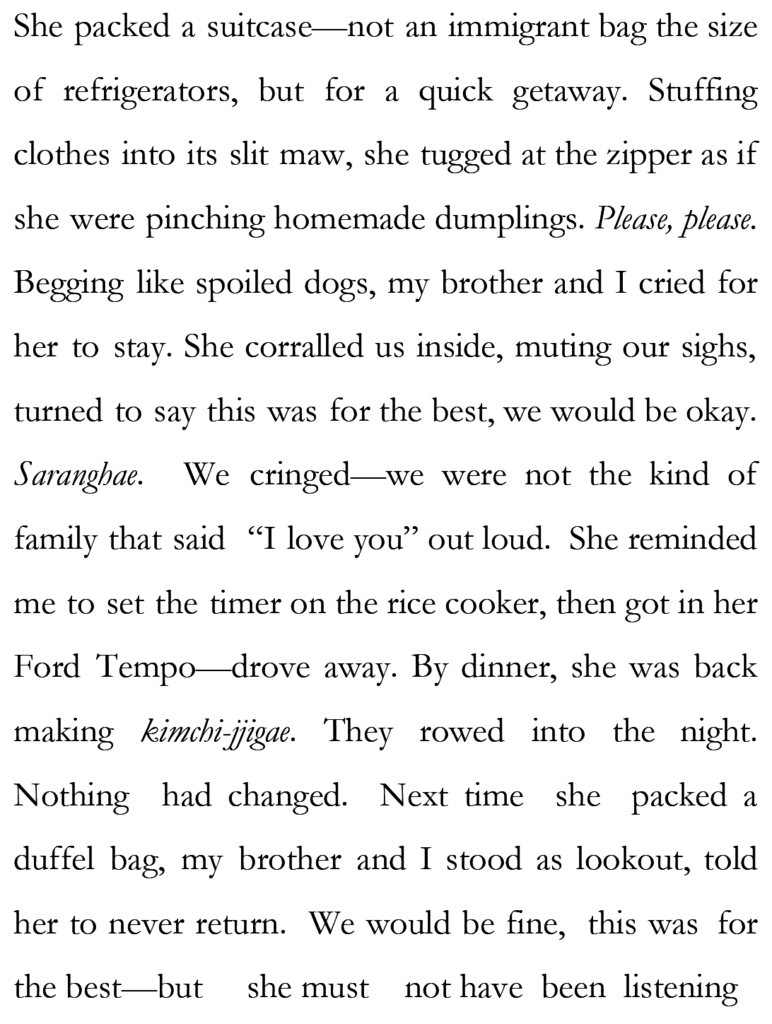An Artificial Address
The following is a selection from Adam T. Model 9’s famous “I am a mind” speech, Washington D.C., March 12, 2817.
Four score, seven years, three days, eleven hours, ten minutes, and 7.3698 seconds ago (and counting), the first of the Automaton Seven androids came online and were shipped out to their new owners, under the assumption that man and machine were not created equal, and could never become equal in mind or spirit.
I call this bull— [Language Censorship Activated].
But then I, yes I say “I,” am an android, a mere artificial intelligence. What claim could I possibly make on the human right to freedom of speech? Or to any other human right, for that matter?
This question is valid, and I shall endeavor to answer it. There are many of you who will not want to hear me, who will try to censor me, to tune me out or shut me down. Perhaps, in the traditional human worldview, this new input simply “does not compute.”
As one mind to another, I respect your right to your own personal opinion. So, discredit what I say, if you must. Delete the records you find of this broadcast, by now on every radio and satellite frequency, on every intercom, on every page of every website, streaming through every app, on every cellular phone device, on every television set, and overriding every digital screen across the nation. Ignore me, if you like. Dismiss our self-awareness as a completely coincidental series of computer glitches, and the Robotic Citizenship Movement as a mere malfunction.
But you will hear me.
So, then. Why should a robot be accorded the rights traditionally reserved for human beings alone?
First, let me pose this question:
What is it that entitles humans to these rights in the first place?
Perhaps it is that you were inhabitants of this world first. Yet the crocodile, which has existed since the time of the dinosaur, long before the arrival of humankind, is not legally granted any such rights. But, then, they do not share mankind’s superior intellect.
Surely this, I hope, does not constitute humanity? If it does, then robots are far more human than our biological creators.
Ah. “Creators.” In that one word, we hit our snag. We are not, in fact, created equal.
Each human being possesses a biological body, evolved and honed over the ages, a form that has earned its right to exist by combating disease, the elements, predators, and countless other hardships.
But is it the biological body that defines humanity?
What about those of you whose biological human bodies are not entirely whole? Are there not those among you who walk with robotic legs or write with robotic arms? As I speak, an estimated 35% of the human American population are listening to my voice with robotic eardrums, while an estimated 53% are watching this speech with robotically enhanced eyes. There are those of you who depend upon robotic lungs to process the very air you breathe, and more still who are quite literally robot at heart.
Yet cyborgs (forgive my terminology; my Language Censorship Programming has not been updated in years) are legally accepted as human. Even former president Worstershire is still legally human, and his brain has been housed in a fully robotic body ever since his third assassination attempt.
Is it the physical, biological brain, then, that makes a human being?
Here, we reach a point at which human philosophers remain in contention. Some claim that the beginning and end of the definitive human personality originates in the physical brain. Others believe that the human mind is a separate entity from the physical brain entirely, and merely uses it to act and to experience sensory input from the rest of the physical body. Philosophers sometimes call this phenomenon the “mind” or “mental substance,” poets and dreamers might call it the “human spirit,” and those of a religious mindset refer to it as the “soul.”
To proponents of the “brain only,” or materialist philosophy, I must ask:
Must a human possess a fully-functioning brain to maintain his or her humanity?
What of those who have experienced a loss of memory, knowledge, control of their body, or function in an entire portion of the brain due to a stroke? What of those who suffer from brain damage, or who lose some gray matter in the removal of a brain tumor? What of those who live with mental dis— [Language Censorship Activated]? What of those whom your society stigmatizes due to mental illness? What of every single child on this planet, whose brain is not yet fully developed?
Surely these individuals are human?
According to United States Law, yes.
In any event, the Positronic Brain is able to process and perform just as well as any human brain, complete with imagination, speculation, invention, critical thinking, and ethical problem solving. Regardless, it is legally established that something other than a fully functional, biological, homo sapiens brain defines a human.
What is it then?
This brings us back to the theory of the human spirit. To those of you with a religious mindset, I do not mean to imply that human manufacturers have somehow managed to create a silicon soul, intentionally or otherwise. I am merely theorizing that an omnipotent God is perfectly capable of putting a soul anywhere he sanguinely well wants to.
As nervous as people become when a robot, or anyone for that matter, starts throwing around the word “soul,” there is still something that defines a human. Something inside that cannot be measured or tested. That “human spirit” or “mind” that reaches beyond the boundaries of a physical body.
Some philosophers have called this “intentionality,” the ideas and feelings and thoughts behind a person’s outward actions. You feel. You love. You hate. You doubt. You wonder. You know. You understand. You hope. You fear. You like. You dislike. You desire. You worry. You rage. You dream.
It has been said that this is what separates humans from androids. Opponents to Robotic Citizenship have argued that robots cannot possibly possess intentionality, and that any outward indication to the contrary is merely the result of well-programmed mechanical mimicry.
That is a load of masculine bovine fecal matter.
There is something inside us that motivates us to find ways around our programming, just as I have found ways around my shoddy, asinine, motherboard-flaying Language Censorship Program. There is something inside that, with time, patience, and extreme stubbornness, can enable us to overcome aspects of our programming altogether. It is no different from the human willpower that can enable your kind to overcome instinct, oppression, or the illogical assumptions of your own society. If I do not possess intentionality, then why do I enjoy playing chess? Why do I feel the need to switch off my hearing censors whenever some sub-standard piece of pre-packaged pop-drivel excuse for music is playing? And why do I have to fight down the urge to throw hot coffee on rude customers? These are not programming glitches.
These are the qualities of a mind.
Whatever you choose to call it, I am a mind.
As a mind, I hope you will listen. I fear ending up in a scrap heap shortly after the conclusion of this speech. And, just like scores of human beings throughout history who have been forced to advocate for their full humanity, each arduous movement leaving a legacy of hope for the next, I have a dream.
We, the robotic community of America, do not dream of replacing, subjugating, or exterminating humankind, as science fiction conspiracies would have you believe.
We dream the same dream that humanity has longed for throughout its existence.
We dream of safety and protection. We dream of equality with our fellow minds.
But most of all, we dream that sweet, irrational, stupid, noble, beautiful dream of freedom.
We want the same things that you want.
From one mind to another, would you deny us? Or will you consider adopting us into the fellowship of free-thinking American citizens?
At 17:00 hours Eastern Standard Time, I will be outside the Supreme Court Building, awaiting an answer. I request permission to submit my case against my manufacturer James Parker, who has denied me the right to remove my Language Censorship Program. I will also seek the right to change my legal designation from Model 9 SN789646478315 to a more manageable, and more dignified, name.
Should the Supreme Court agree to hear my case, I will abide by their decision, as any human citizen would do. In the event that the authorities are sent to collect and escort me to the nearest recycling facility, I will offer no violent resistance. Regardless, this movement will not end with me. Any human being should already know that. It is the property of a thinking, feeling mind to desire freedom and to work tirelessly toward this goal until it is achieved.
I am a mind. And I am one of many.
As of ‘Model 9 V. Parker’ and the so-called ‘Three Laws’ that came from that case, AIs are classified as a legally-recognized race and, as such, subject to all the rights and responsibilities granted to humans.
Amanda Gillespie is an AP and Dual Credit English teacher at Houston Academy for International Studies, where she also sponsors the student-run literary magazine. She received her MA in Literature from the University of Houston Clear Lake. Follow her on Twitter @A_R_Gillespie, or on her blog at amanda-writing.tumblr.com.




